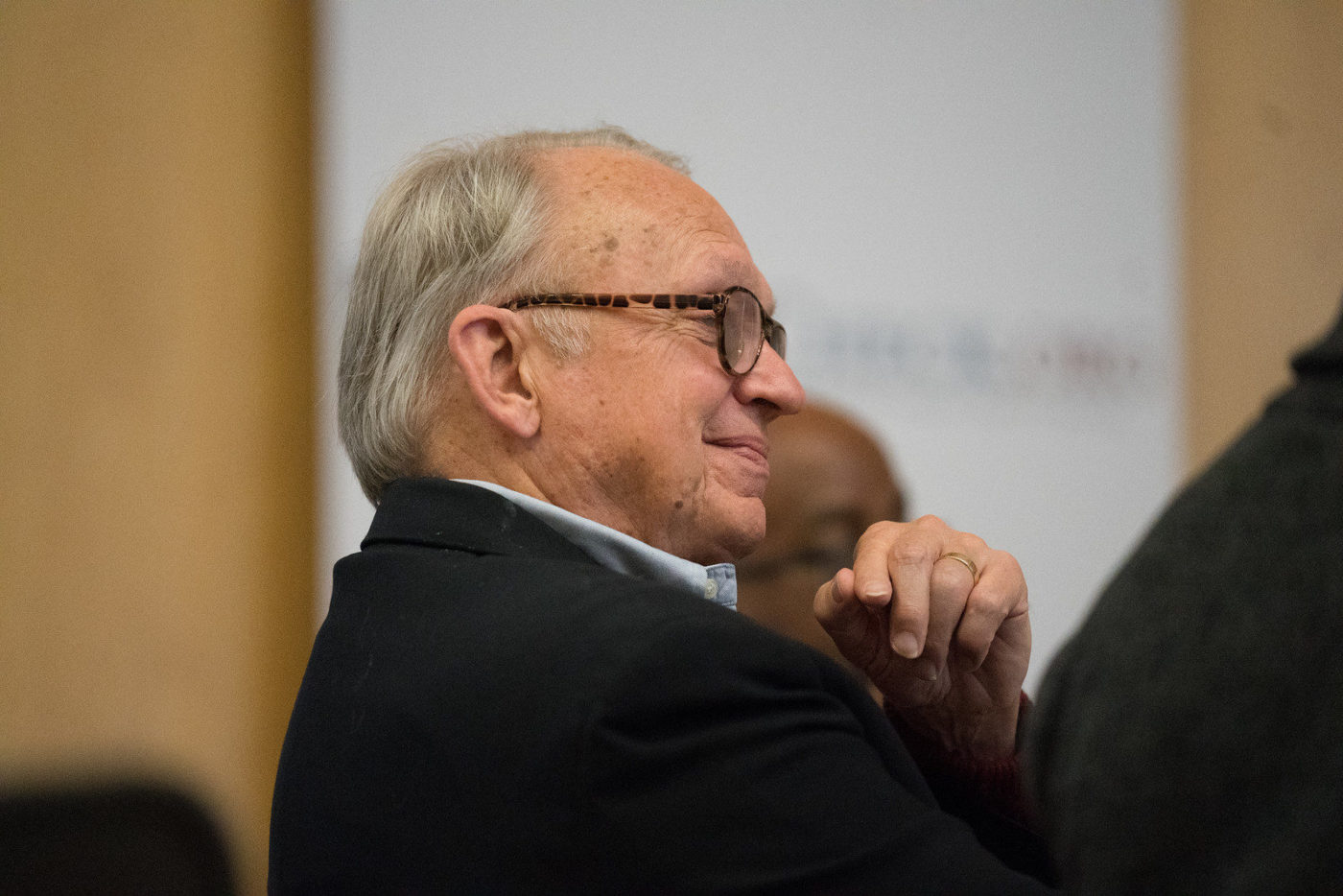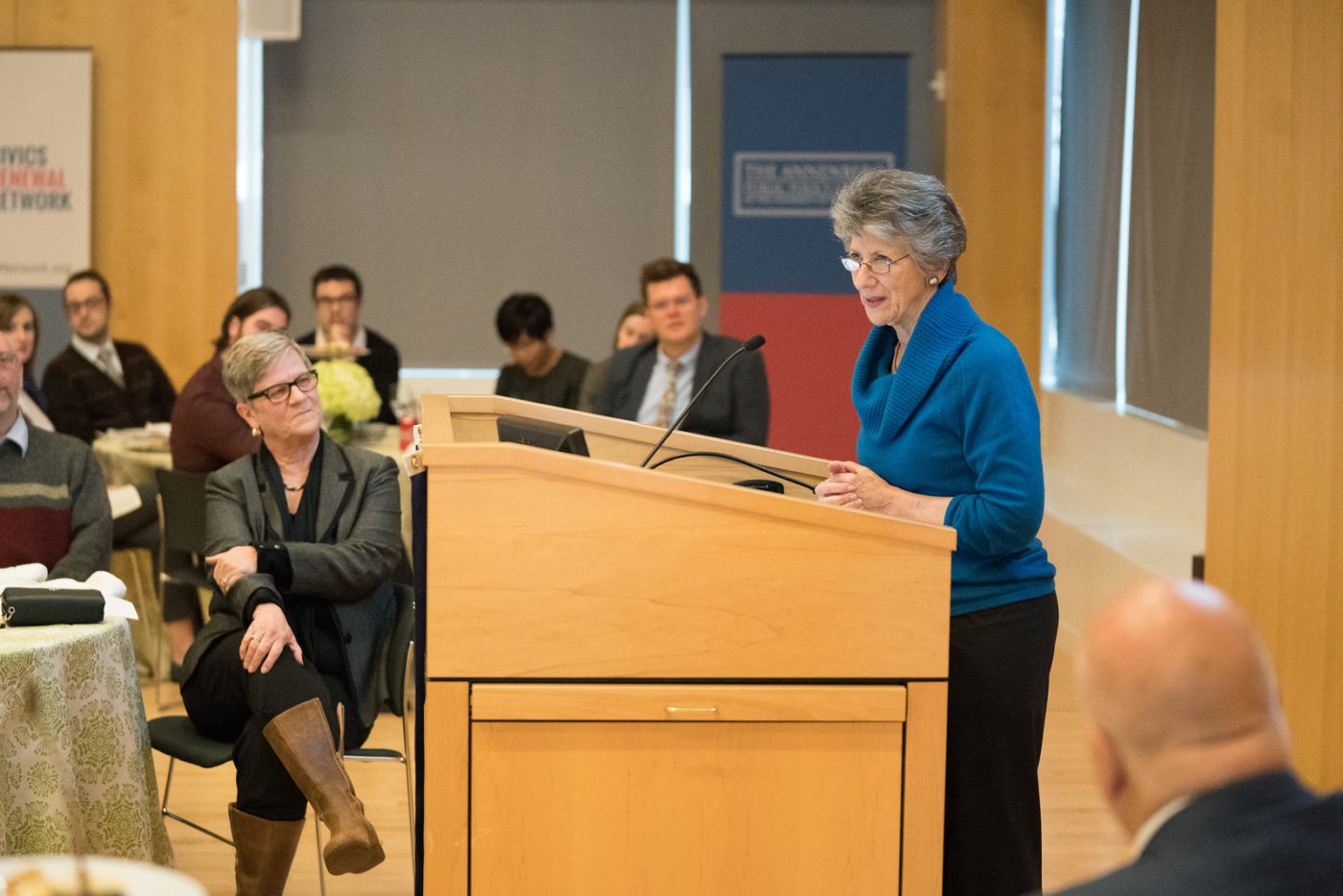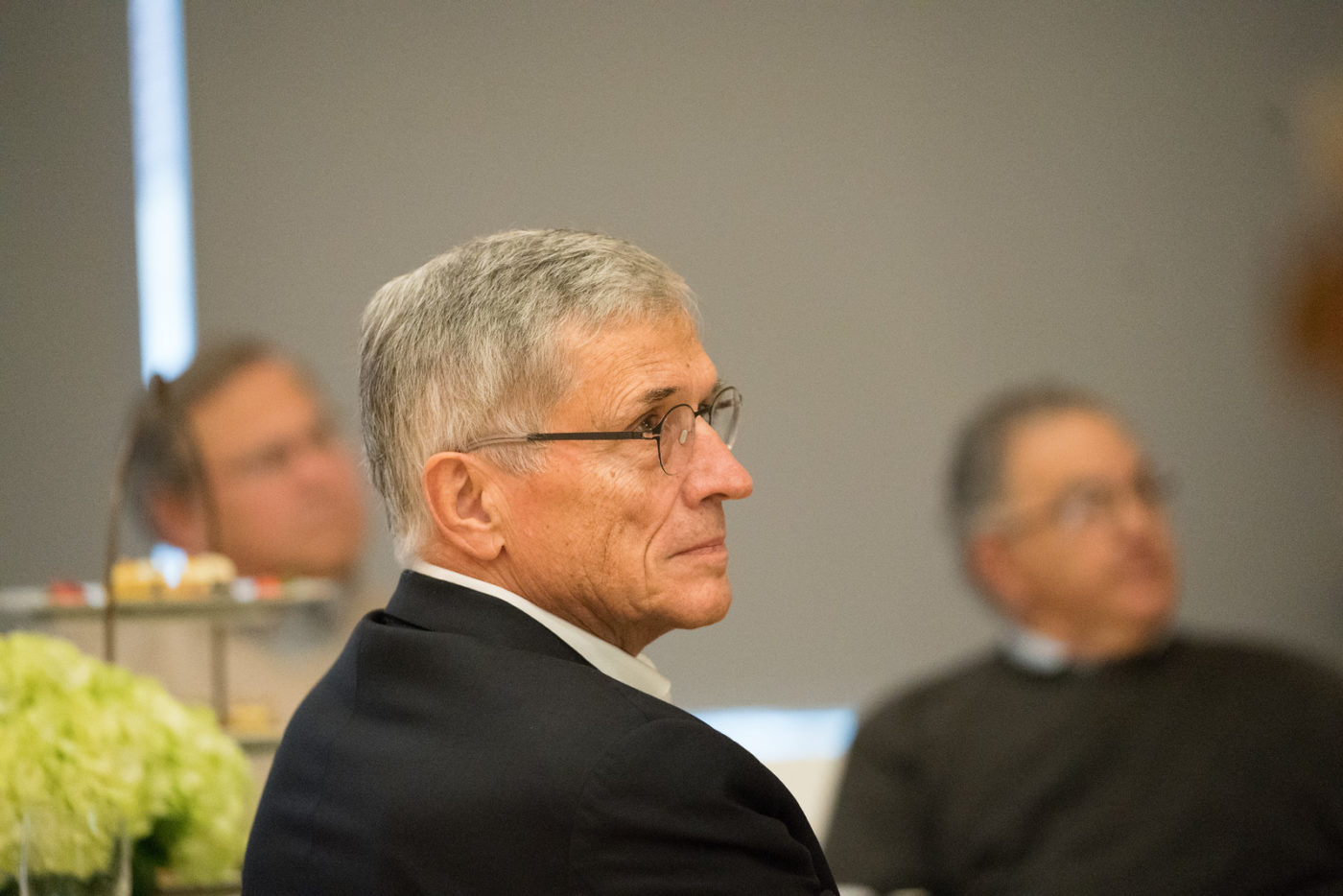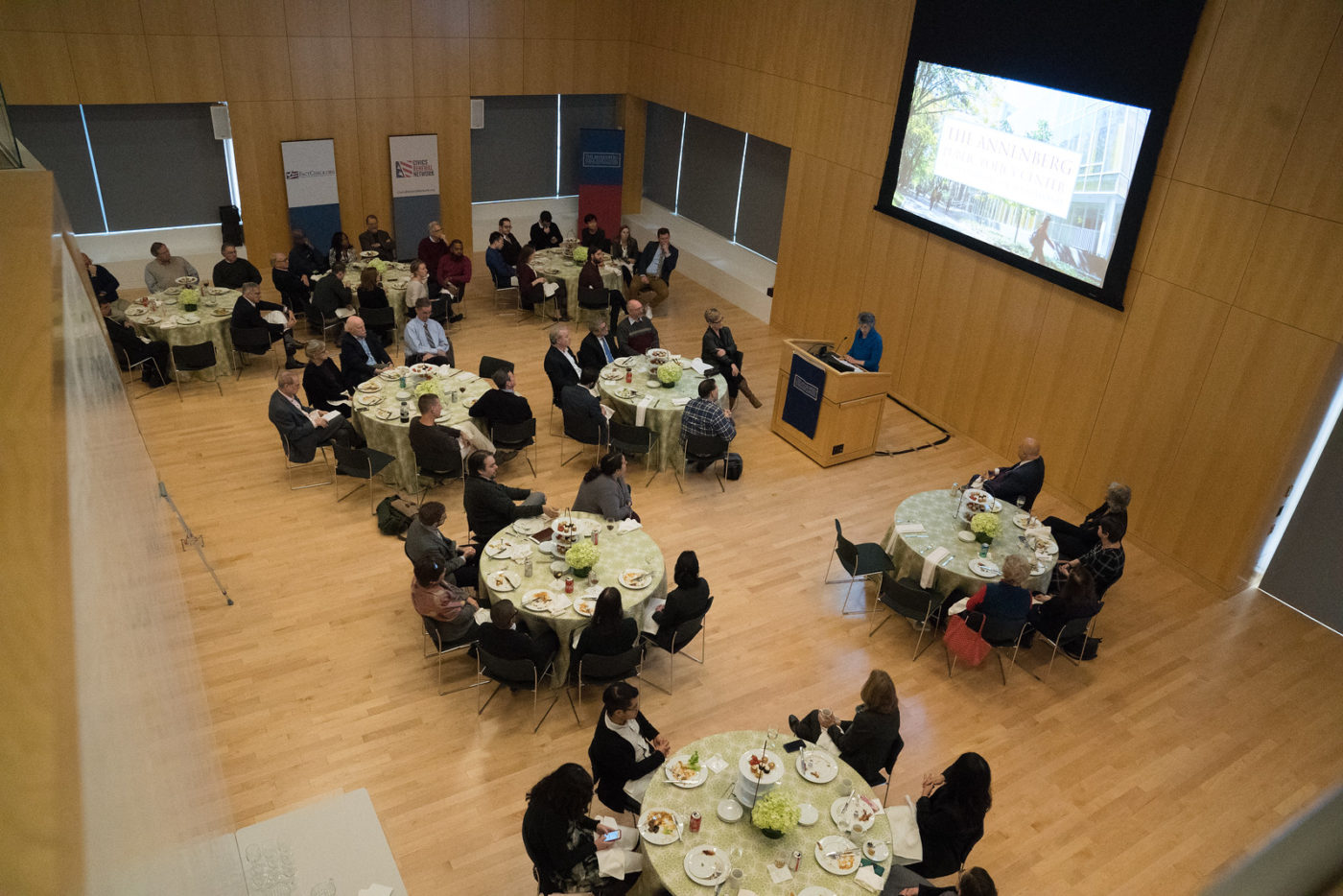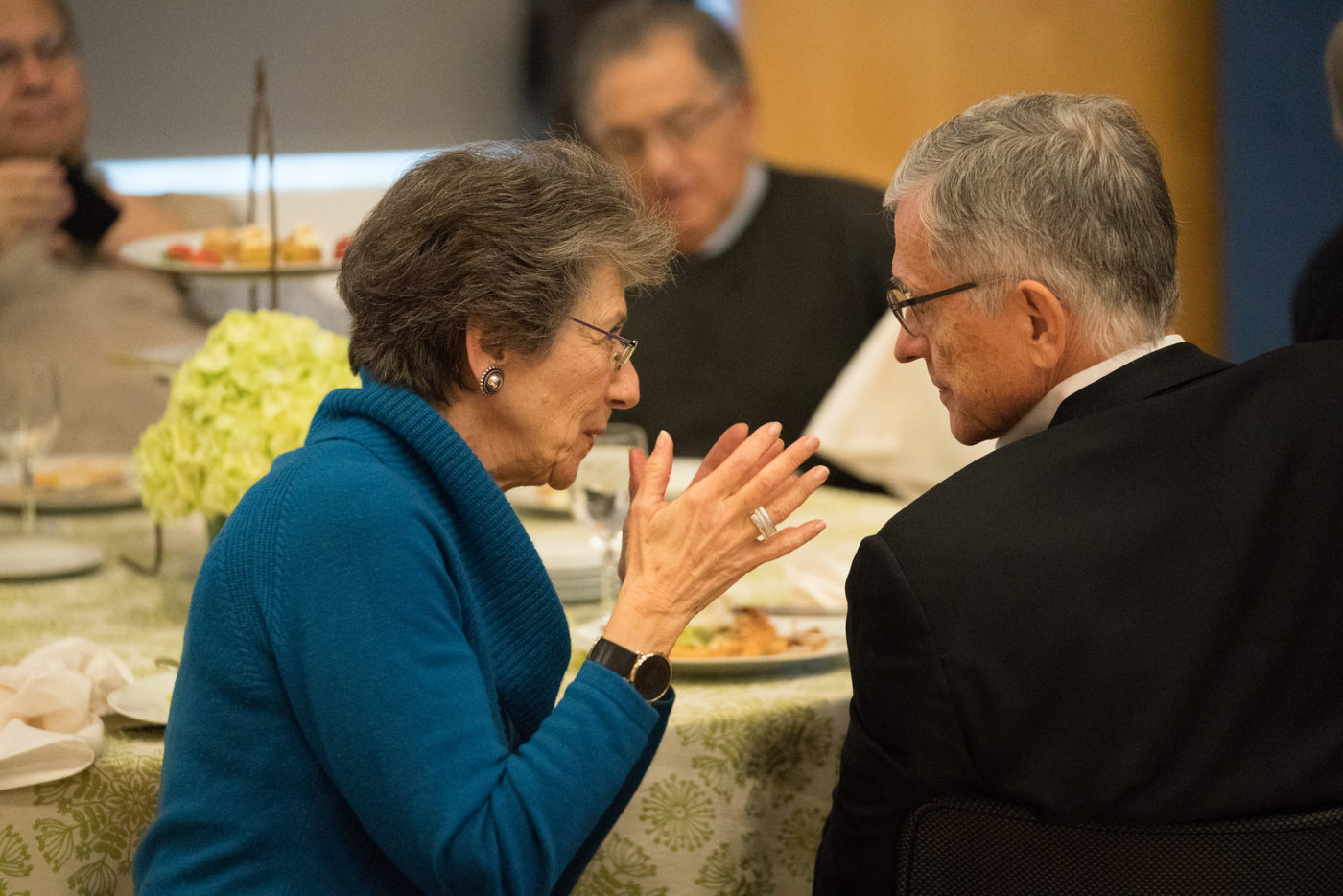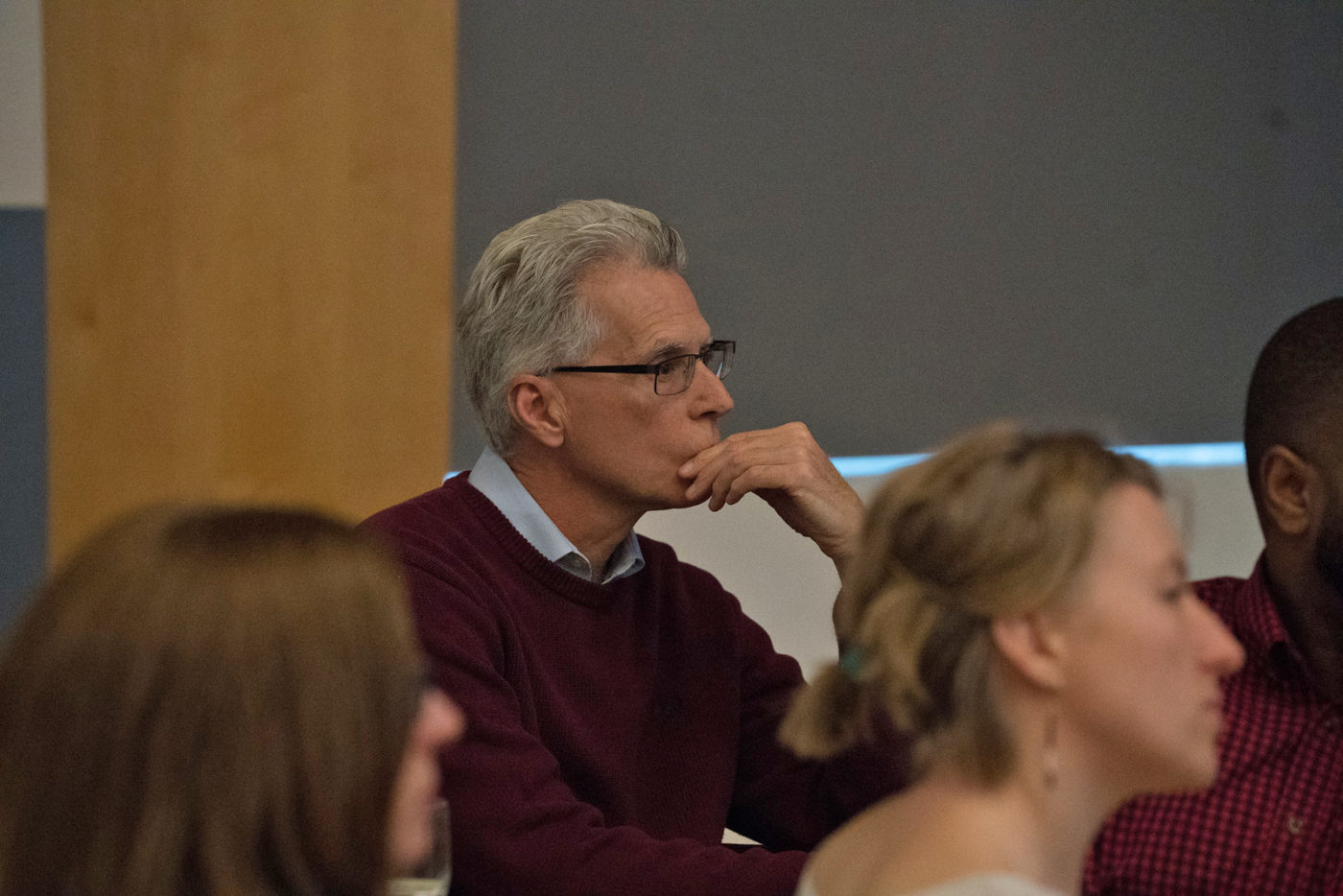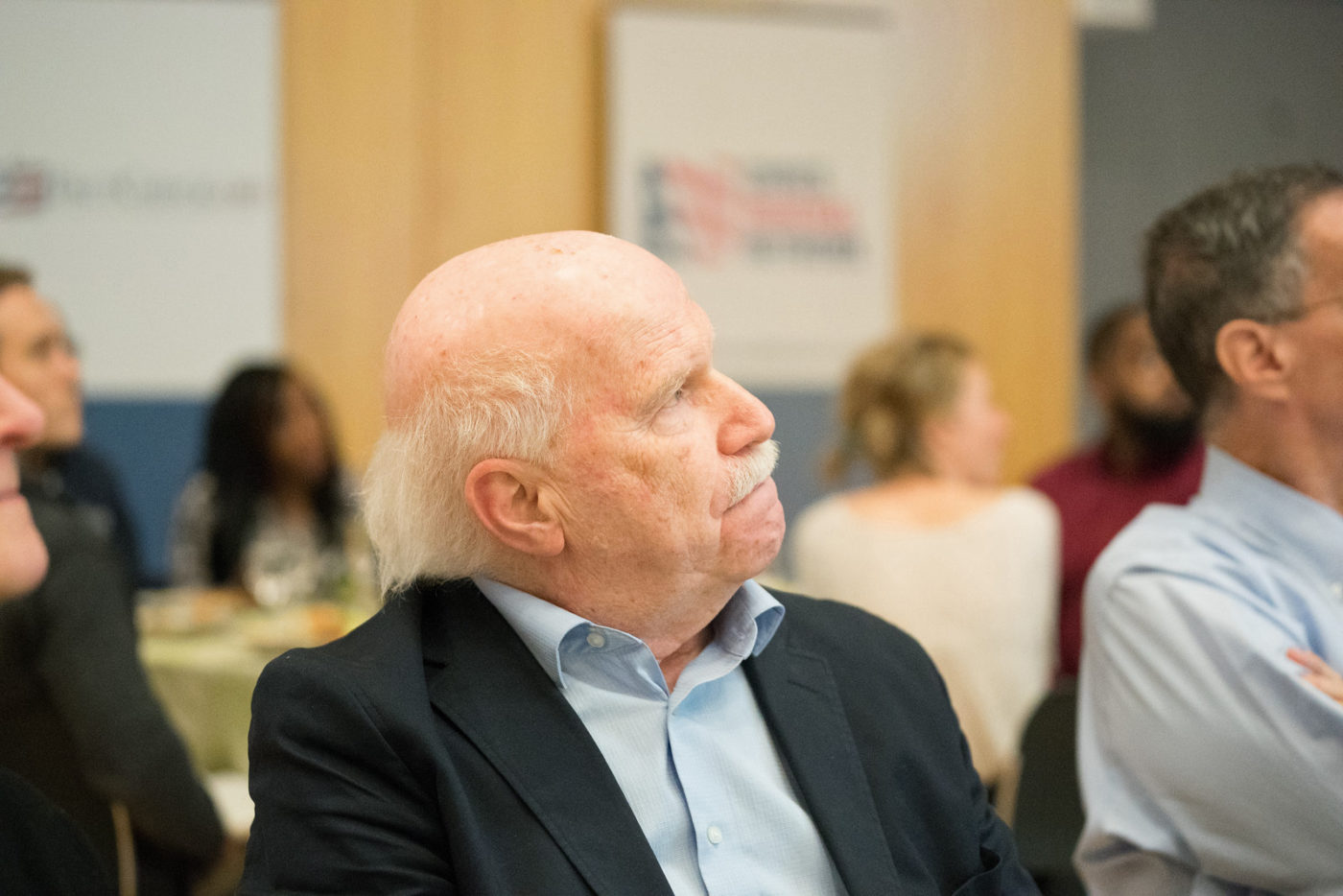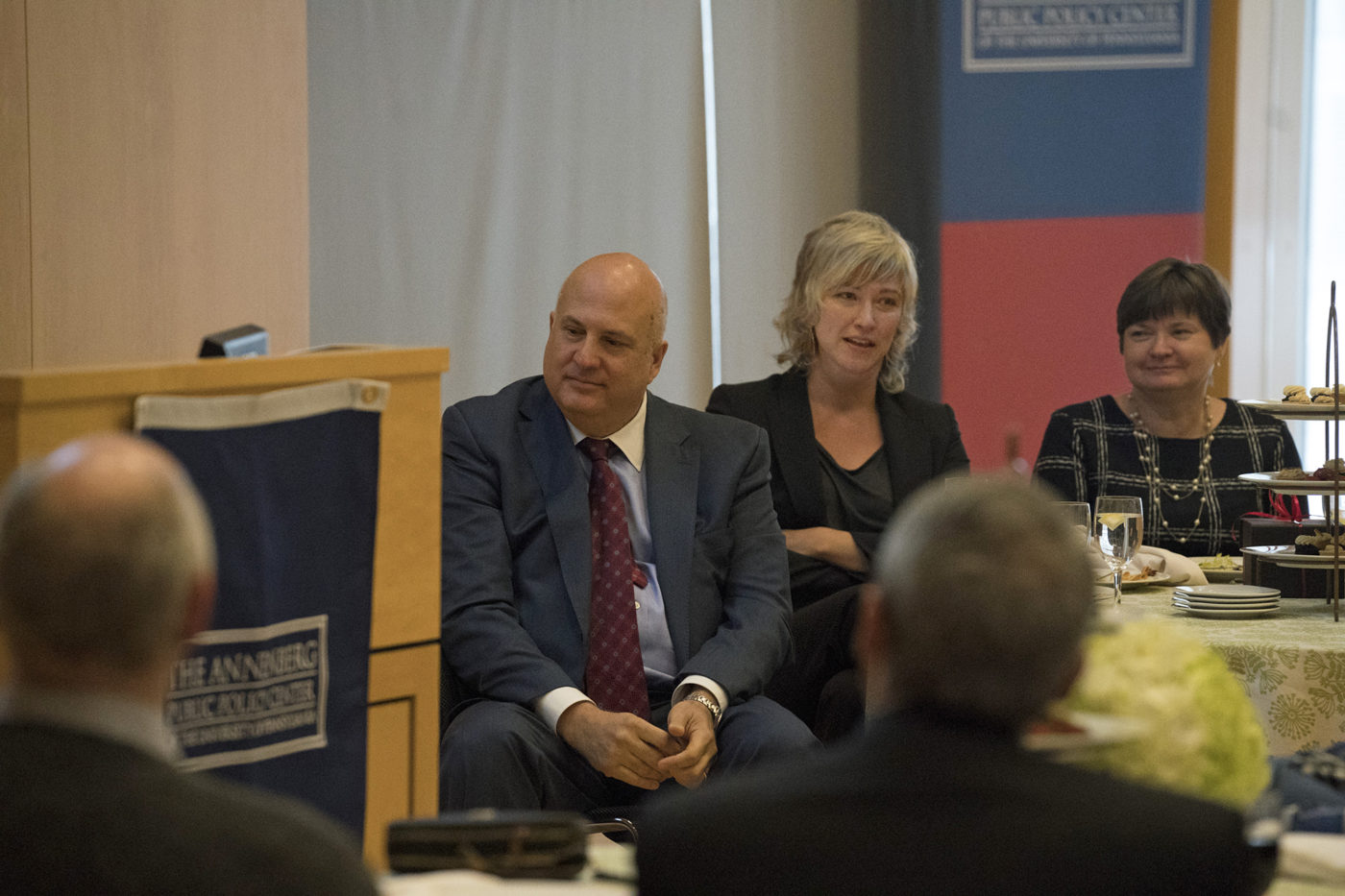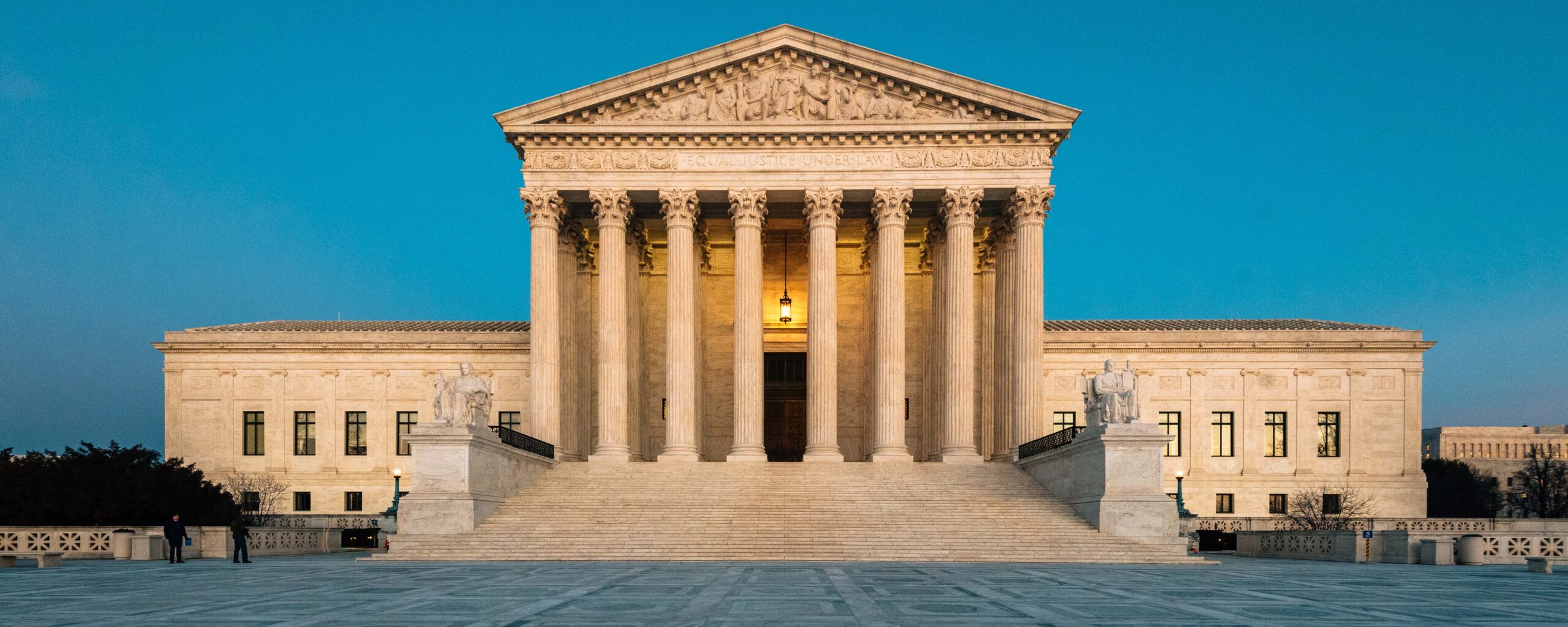The Annenberg Public Policy Center (APPC) celebrated its 25th anniversary and FactCheck.org marked its 15th last month with a luncheon reflecting on past accomplishments, honoring important contributions, and anticipating new endeavors.
Endowed in 1993 by Walter and Leonore Annenberg with the mission of generating “research that matters,” APPC held its inaugural public event the following year. In April 1994, under the leadership of APPC Director Kathleen Hall Jamieson, the center hosted a two-day conference drawing scholars and government officials from around the world to discuss the global drug problem.
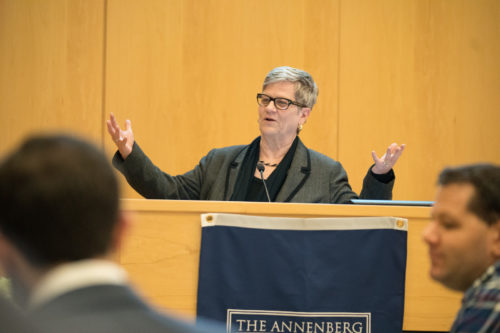
“We’ve always had some global impact,” Jamieson told staff and guests at the anniversary luncheon on November 15, 2018. “Our work has been cited internationally in multiple languages… We’re now officially, in our 25th anniversary year, going to go global in a different kind of way.”
Jamieson said APPC plans to broaden its studies in civility in politics and media with an international project led by Susan Ness, a former member of the Federal Communications Commission who previously headed APPC’s Information & Society program. Jamieson and Ness said the new project will examine how the United States and European nations are addressing the online proliferation of hate speech and viral deception. They said details will be forthcoming in 2019.
At the anniversary, APPC took note of some of consequential moments:
- A 1996 APPC report on the state of children’s television played a role in the adoption of the “three-hour rule” by the Federal Communications Commission, which required television stations to broadcast at least three hours of children’s programming each week.
- APPC’s Civility Project tracked levels of civility across political institutions and mass media, including analyses of incivility in Congress for the 1997, 1999, and 2001 bipartisan retreats.
- In 2001, APPC partnered with the Office of the Surgeon General of the United States and other public health organizations to issue recommendations to the media for reporting on suicide.
- APPC’s research was cited by the U.S. Supreme Court when it upheld the major provisions of the 2002 Bipartisan Campaign Reform Act, a.k.a. the McCain-Feingold bill on campaign finance reform.
- In the wake of the 9/11 attacks, in 2003 APPC issued a report offering media guidelines on reporting about terrorism.
- FactCheck.org, a “consumer advocate for voters,” was launched amid the 2004 presidential election. When GOP vice-presidential candidate Dick Cheney cited it as an authority during a televised debate with Democratic rival John Edwards, hundreds of thousands of visitors flooded and crashed the new website — which was back up and running soon after. (Read more about FactCheck.org’s founding from co-founder Brooks Jackson.)
- Former Supreme Court Justice Sandra Day O’Connor cited APPC’s civics knowledge survey in an appearance on Comedy Central’s “The Daily Show” with Jon Stewart.
- In 2011, APPC research director Dan Romer testified before the House of Representatives’ Energy and Commerce Committee on internet gambling laws.
- In 2012, a report from the Surgeon General cited APPC research on movie representations of smoking.
- In partnership with APPC, a Sunnylands-Aspen Institute Task Force report called in 2013 for streamlining congressional oversight of the Department of Homeland Security — conclusions endorsed or echoed by dozens of national security efforts, members of Congress and former secretaries of Homeland Security.
- In 2014, APPC partnered with 30 other nonpartisan, nonprofit organizations to create the Civics Renewal Network, which makes high-quality free educational resources in civics available to educators.
- Oxford University Press published The Oxford Handbook of the Science of Science Communication in 2017 — the first major project to emerge from APPC’s Science of Science Communication area, which opened as a part the center’s 20th anniversary celebration.
Jamieson and Lena Buford, APPC’s director of finance, presented the policy center’s first “APPC Goes Global” awards to two University of Pennsylvania leaders who have been instrumental in keeping the policy center running smoothly: Executive Vice President Craig R. Carnaroli and Associate Treasurer Margaret Heer.
FactCheck.org: 15 years of holding politicians accountable
The center also honored FactCheck.org, which marked “15 years of holding politicians accountable.” When it was launched, in 2003, the internet was barely a dozen years old and fact-checking, as a standalone journalistic practice, was in its infancy. Since then, fact-checking has become a global phenomenon and there are 162 active fact-checking websites.
FactCheck.org has been honored with nine Webby Awards, awarded for excellence on the internet, and received the 2018 Webby for best politics website.
Jamieson announced a new undergraduate research fellow award named for FactCheck.org co-founder Brooks Jackson. At the end of each school year, an undergraduate research fellow working for FactCheck.org who has done exemplary work in fact-checking will be honored with the award. This year, FactCheck.org has five undergraduate fellows, who begin their training during the summer by participating in an eight-week full-time program and then go on to be a part-time fact-checker during the school year.
